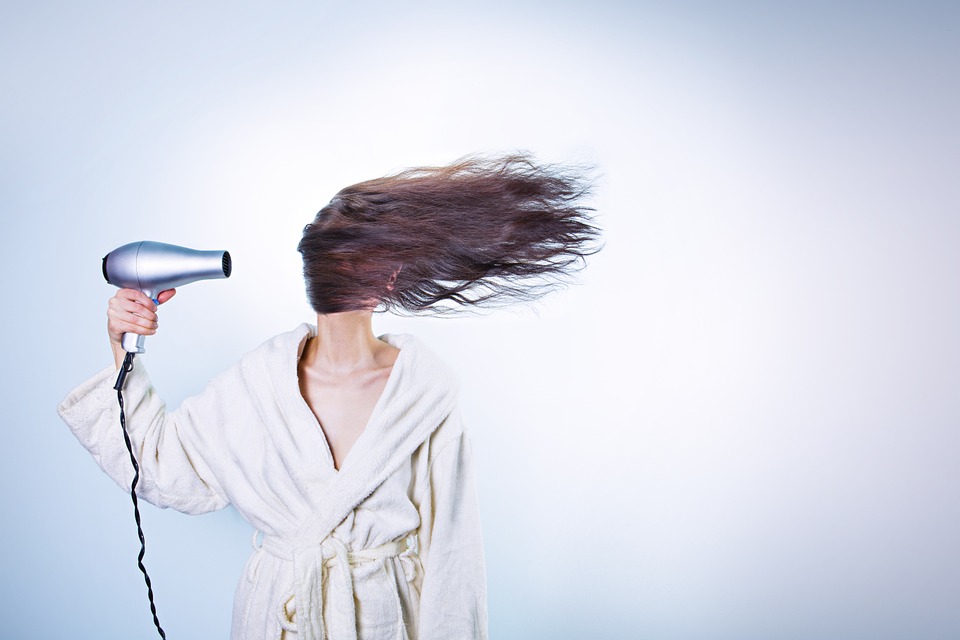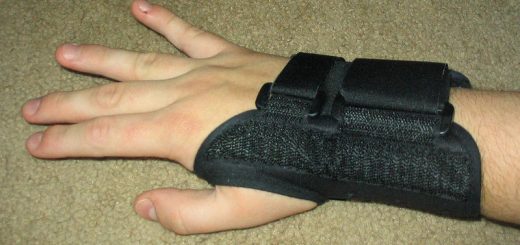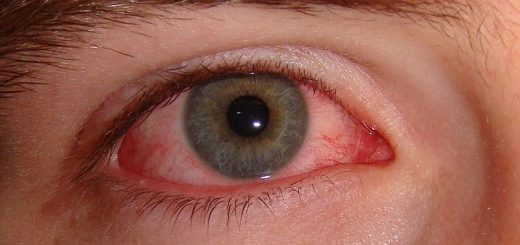15 Home Remedies for Fear of Flying (Aviophobia)
Phobias are fears that are diagnosed by a psychologist or psychiatrist once the fear has appeared. The one most people know includes arachnophobia, the fear of spiders; acrophobia, the fear of heights; and agoraphobia which is the fear of crowds. Another common fear among individuals is the fear of flying or aviophobia. This article will focus on the symptoms, the possible causes, and the cures for overcoming this affliction.
Symptoms
Aviophobia when it affects a person will show in the person as if they are having an anxiety attack or have become powerless over their surroundings. Some of the symptoms include but are not limited to the following:
- Nausea, vomiting, and motion sickness
- Dizziness or a feeling of ‘falling’
- Sweating
- Muscle tension
- Heavy breathing
- Increased heart rate or palpitations
- Shaking or trembling
These symptoms often mimic a panic attack; your heart starts beating faster, you may feel dizzy or as if you may pass out. You’ll start sweating uncontrollably and may start trembling. In extreme cases you’ll not over feel sick you’ll vomit; those little bags on the airplane do serve a purpose. What causes a person to become so afraid of flying so that they may encounter these symptoms?
Causes
The easy explanation of why a person may be afraid of flying may be that they have had a bad experience on a plane that had a rough take-off or landing or flew through a storm with heavy turbulence. Other fears may play into aviophobia such as claustrophobia, (fear of small places), maybe they can’t swim, and the flight is over water, fear of crashing, or a simple fear of not knowing how planes work; the seat cushion may become a floatation device, but the plane is not going to become a boat. Once diagnosed there are several treatments and cures for aviophobia.
Home Remedies for Aviophobia
-
Cognitive Behavioral Therapy
Cognitive behavioral therapy (CBT) focuses on changing how a person thinks about a person, thing, or event. In this case, the fear of flying may be approached by simply providing statistics on the safety of flying, visiting an airport, or accompanying the sufferer on a flight.
-
Visualization
With CBT, a counselor or a friend may have the person visualize a perfect flight from check-in to landing. By doing so they can adjust as the flight is in the process to go back to their visualization as a safety net if the flight doesn’t go their way.

Visualization means using your imagination to imagine how flying will be
-
Motion Sickness Medication
To help combat the physical symptoms some motion sickness medication and its side effect of sleepiness may help the individual on longer flights.
-
Anti-anxiety Medication
The individual may suffer from anxiety and flying is just one of their fears. A prescribed medication may assist them. Ask your doctor if you think anti-anxiety medication might be right for you. If you only feel anxious when flying, then you will not likely have to take medication every day, just when you need it.
-
Relaxation Techniques
Deep breathing along with focused breathing during both take-off and landing which can also be used during any turbulence may be useful. Download a guided meditation mp3 to listen to before going on the plane to relax.
-
Read
Packing a good read, perhaps a favorite or comforting book will help you face the long flight by distracting your mind.
-
Listen to Music
Sometimes the noise of the flight from crying babies to snoring can raise the anxiety in individuals. Having a playlist created that is relaxing or just to simply drown out the noise by simply inserting earbuds can be effective.
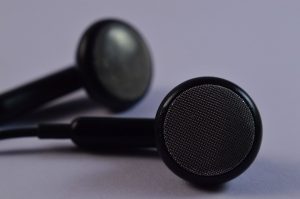
Pack an extra pair of earbuds just to be safe!
-
Watch a Movie or TV
I recommend bringing your own portable DVD player to not add to the cost of your flight by purchasing an in-flight movie. Also, sometimes there are so many announcements that you may not finish a movie in flight missing the ending which adds to your frustration.
Longer flights will have a TV unit in front of you, watch a game, watch your favorite show; keep in mind there may be a cost, but the relief may be worth it.
-
Exposure Therapy
Some airports have “grounded” planes that don’t fly, are under repair, or are there to provide a space to practice exposure therapy. In this practice a counselor or a friend will bring the patient aboard the plane, again it can’t fly, and will sit with them and discuss their fears about flying and work with them on if the fear is rational, or ill rational, again using cognitive behavioral techniques.
-
Aromatherapy
Lavender has been shown to be a relaxing agent. Essential oils are used for a variety of purposes; once the scent is selected it can be used. Vials of oil may not be allowed on, but other options may exist.
-
Ask about a Protocol
Pre-flight ask if you can meet the Captain and Copilot to alert them to your fear. They may have a protocol they can share with the in-flight staff to assist you.
-
Avoid Caffeine
Avoid coffee or other caffeinated beverages. These may increase your anxiety and make it difficult to focus on your relaxation techniques.

Avoid caffeinated coffee, but decaf should be fine
-
Avoid Sugar
Skip the apple fritter and eat a salad. Sugar can amp up your system leading to an increase in anxiety.
Give yourself enough time to get to the airport, go through security, get to your terminal, and then see if you can meet the flight staff.
-
Avoid Alcohol
Don’t drink alcohol. The temptation to do so will be high but overindulgence won’t help calm a person who has anxiety it will only amplify it.
-
Book the Perfect Seat
Sit in the front of the plane where you know you’ll be the first one off and potentially will have less turbulence.
If you know you’ll get sick, book a seat near the bathroom so that if you need to pace you can go into the bathroom and no one will be the wiser.
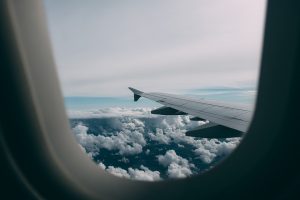
Most people with aviophobia probably won’t want to sit in a window seat
Which of these home remedies will you try the next time you book a flight? Comment below!
References
- Duelli, Homeopathic Remedies For Travel, http://www.alive.com/health/homeopathic-remedies-for-travel/, 2009.


